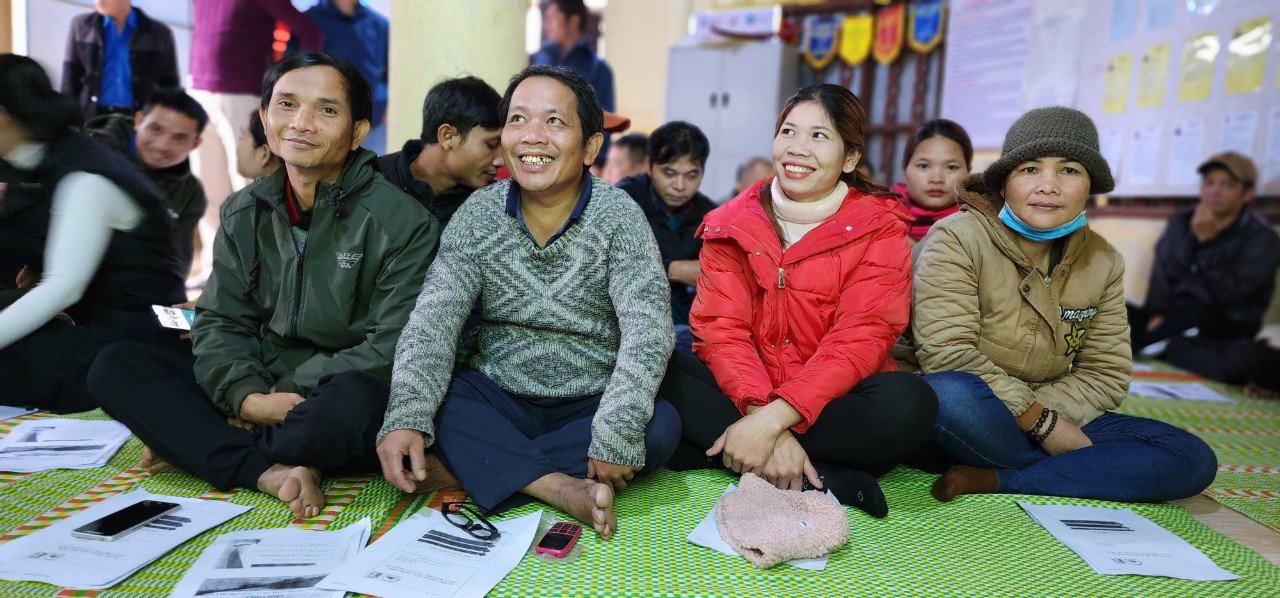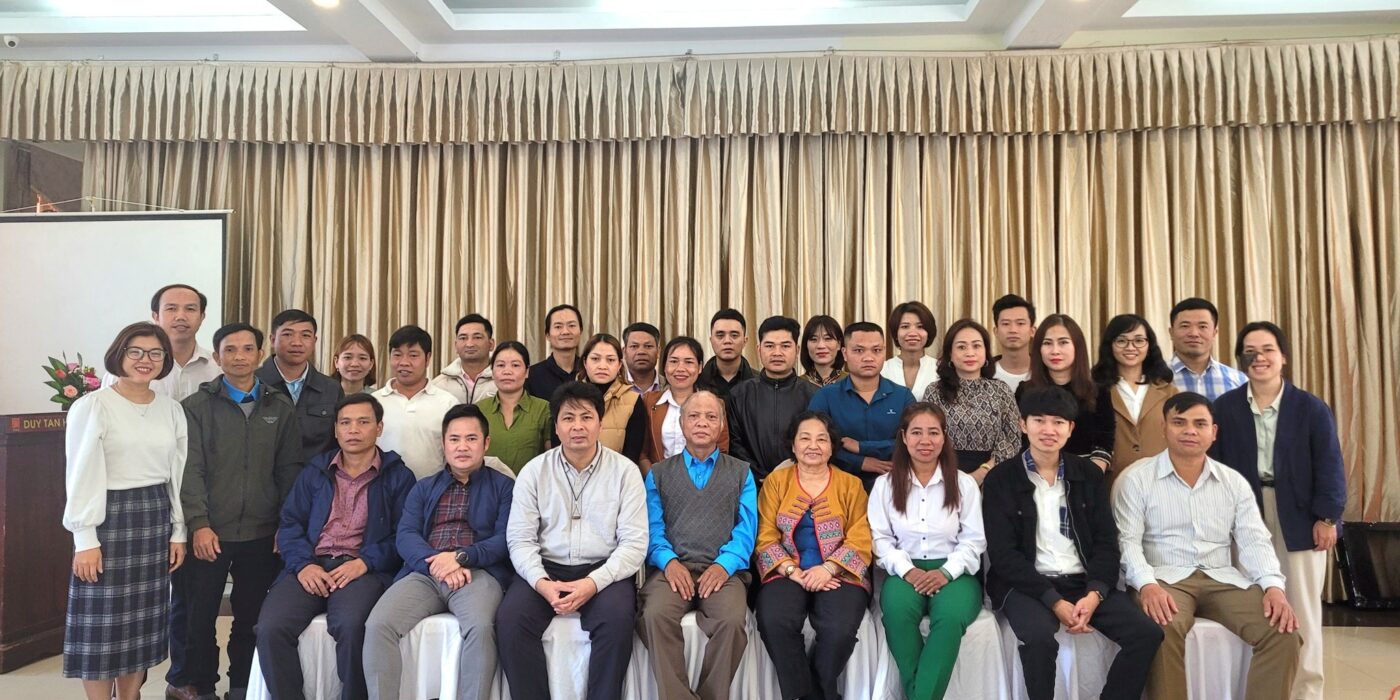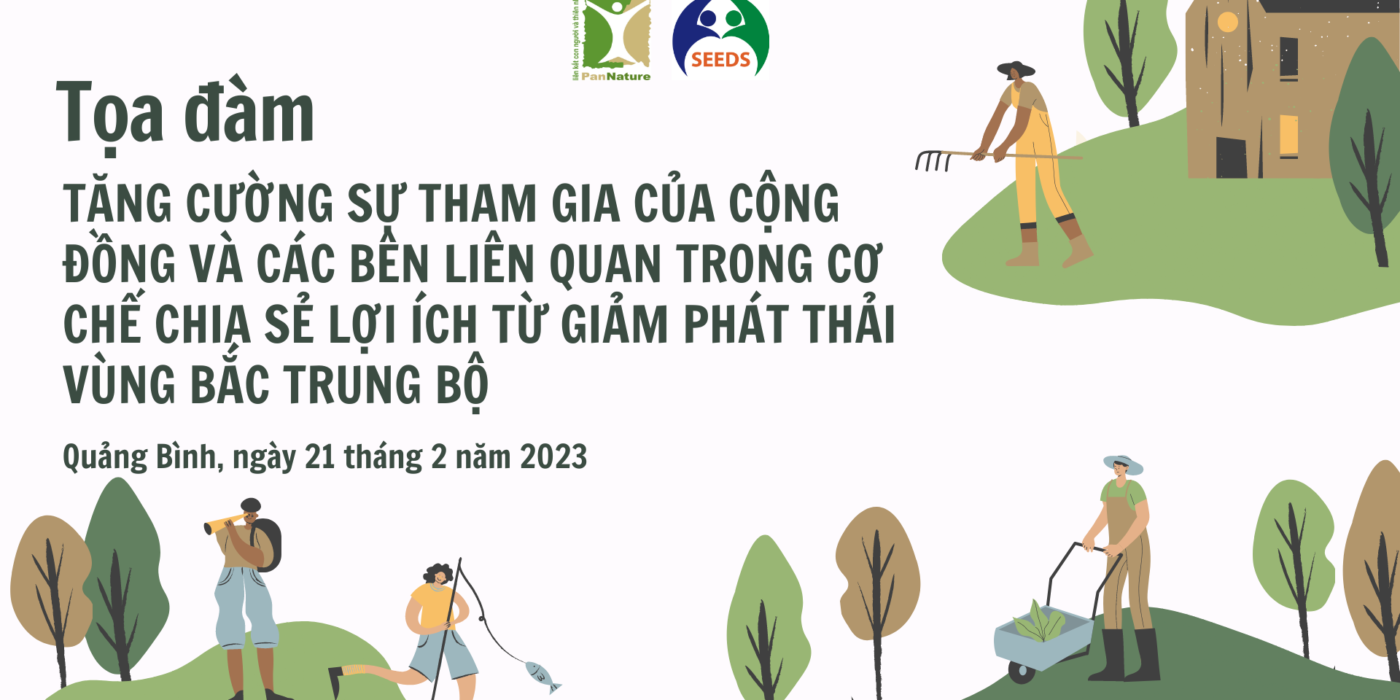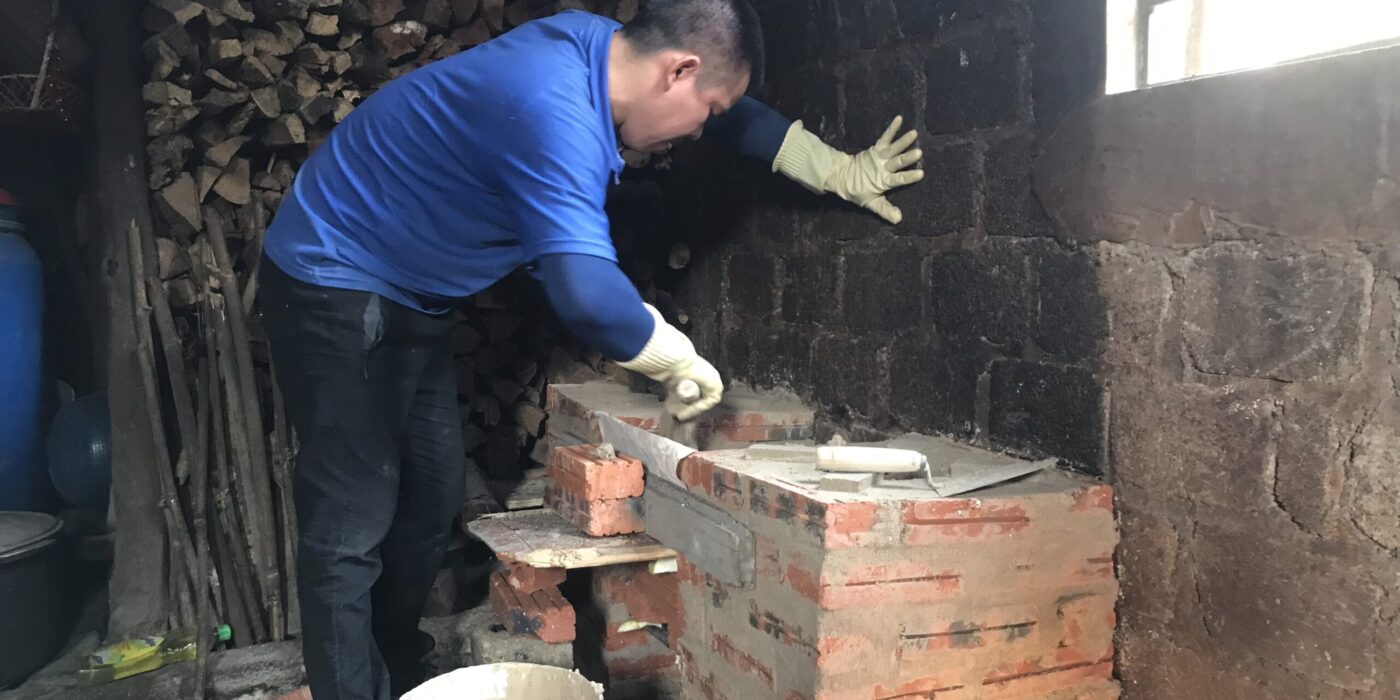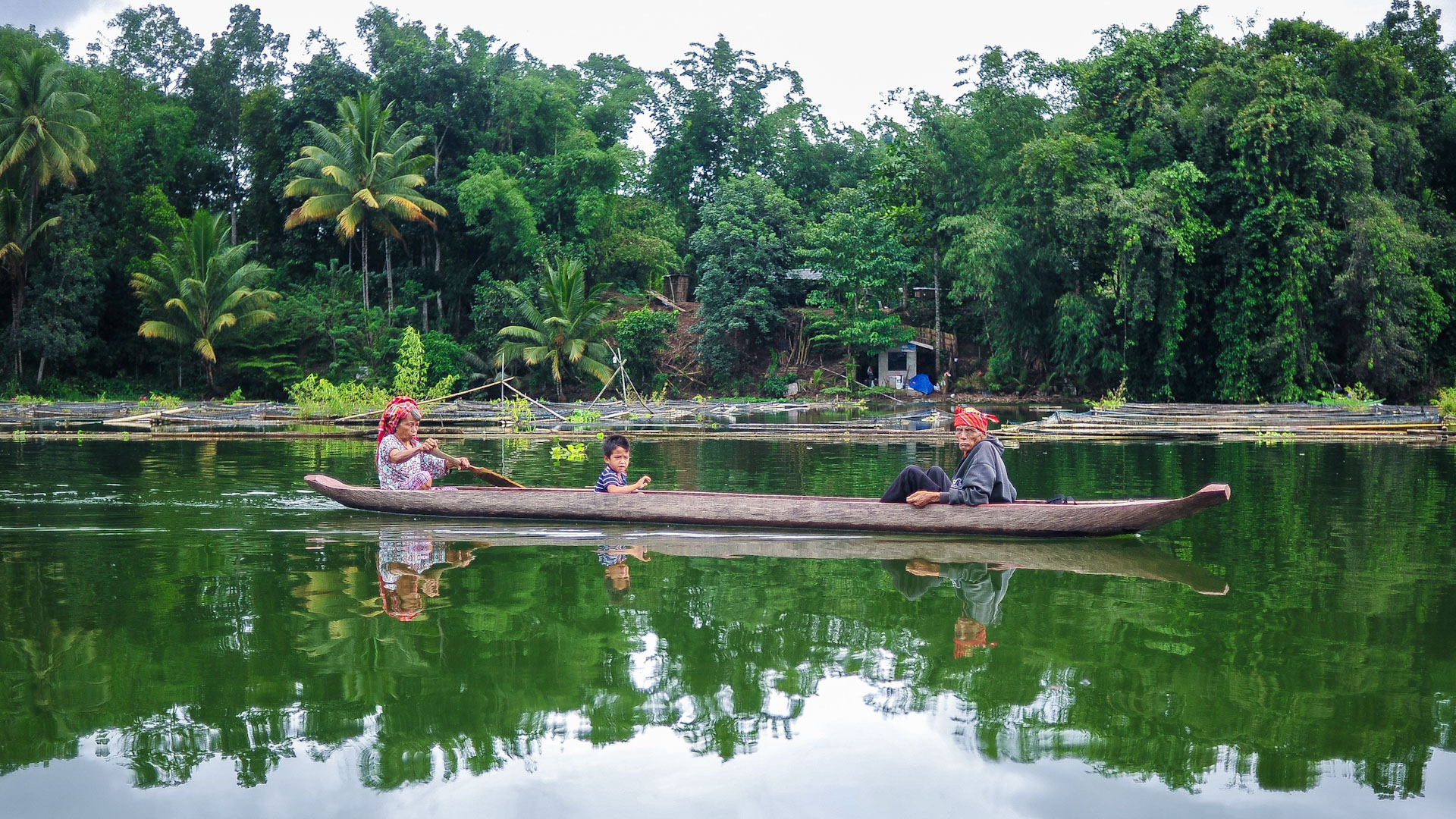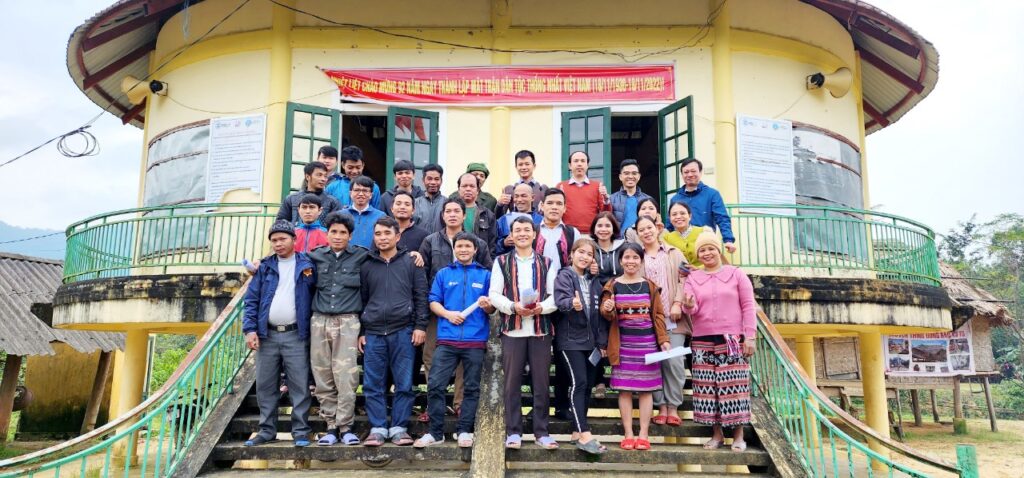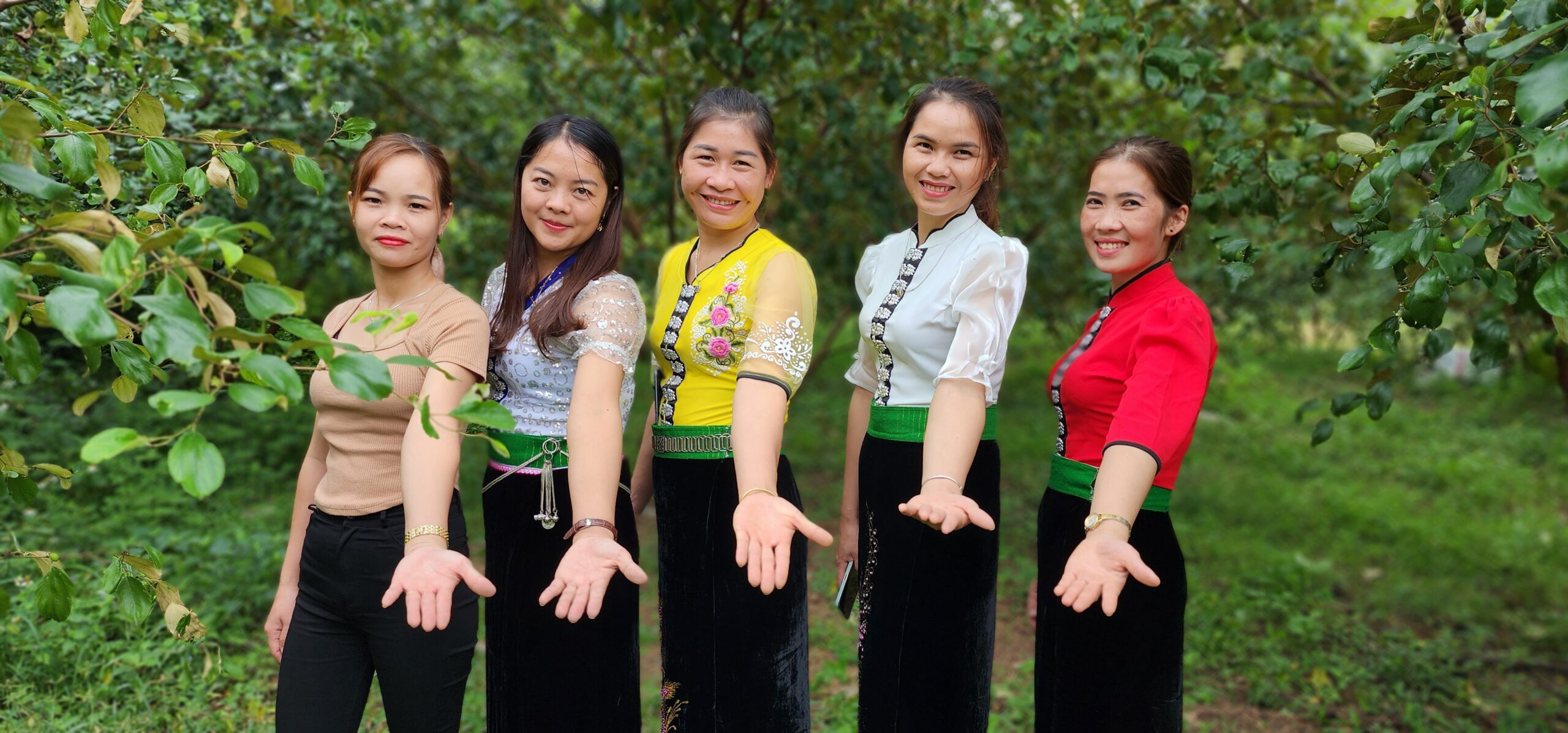Capacity Building on Benefit Sharing in Forest Carbon Scheme
PanNature collaborated with the Forest Protection and Development Fund of Thua Thien Hue province to organize 02 training courses in Thua Thien Hue province for social organizations and communities (A Roang communes and Huong Nguyen commune, A Luoi district, Thua Thien Hue province and Kim Tien village, Kim Hoa commune, Tuyen Hoa district, Quang Nam province) at the end of 2022 and early 2023.

